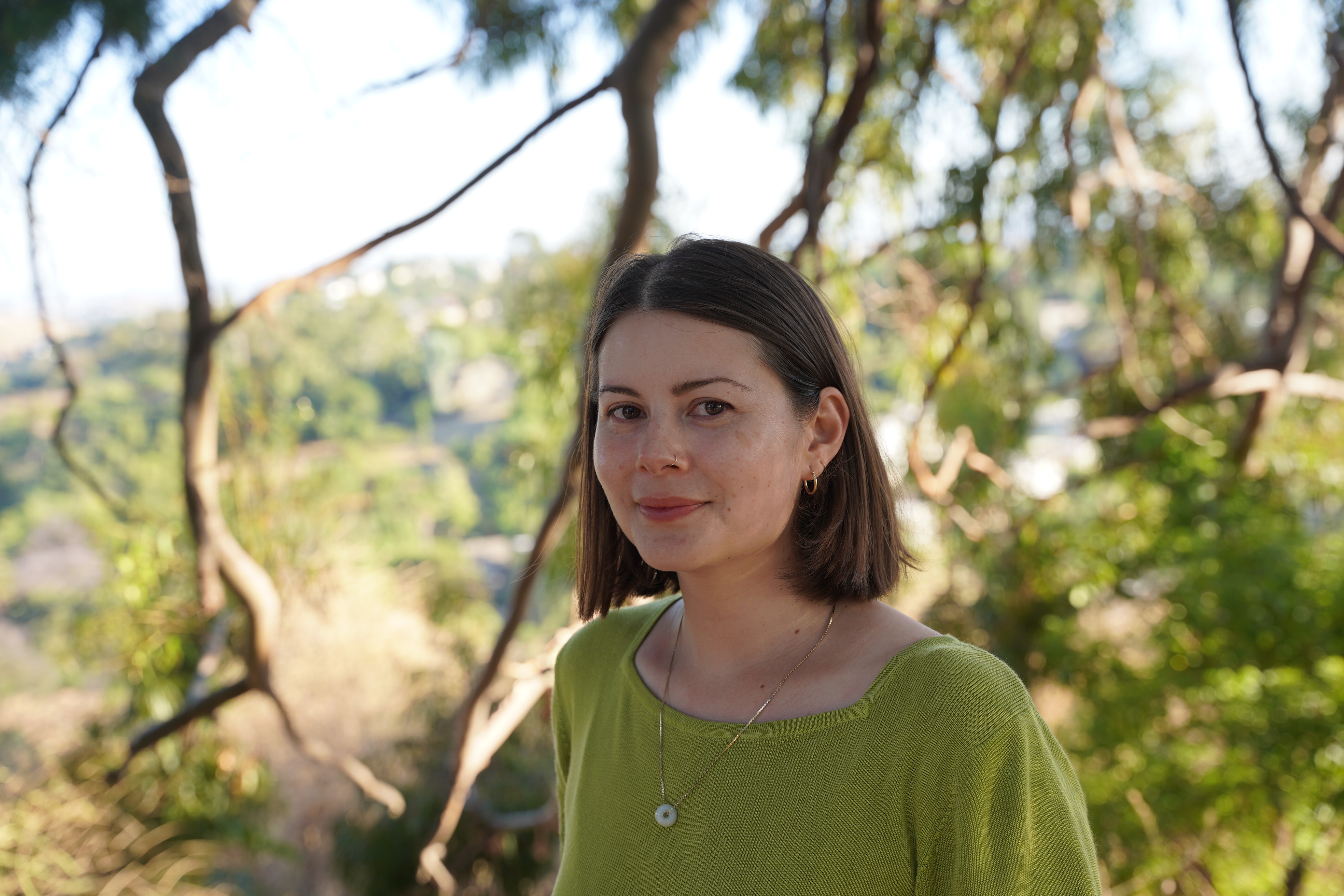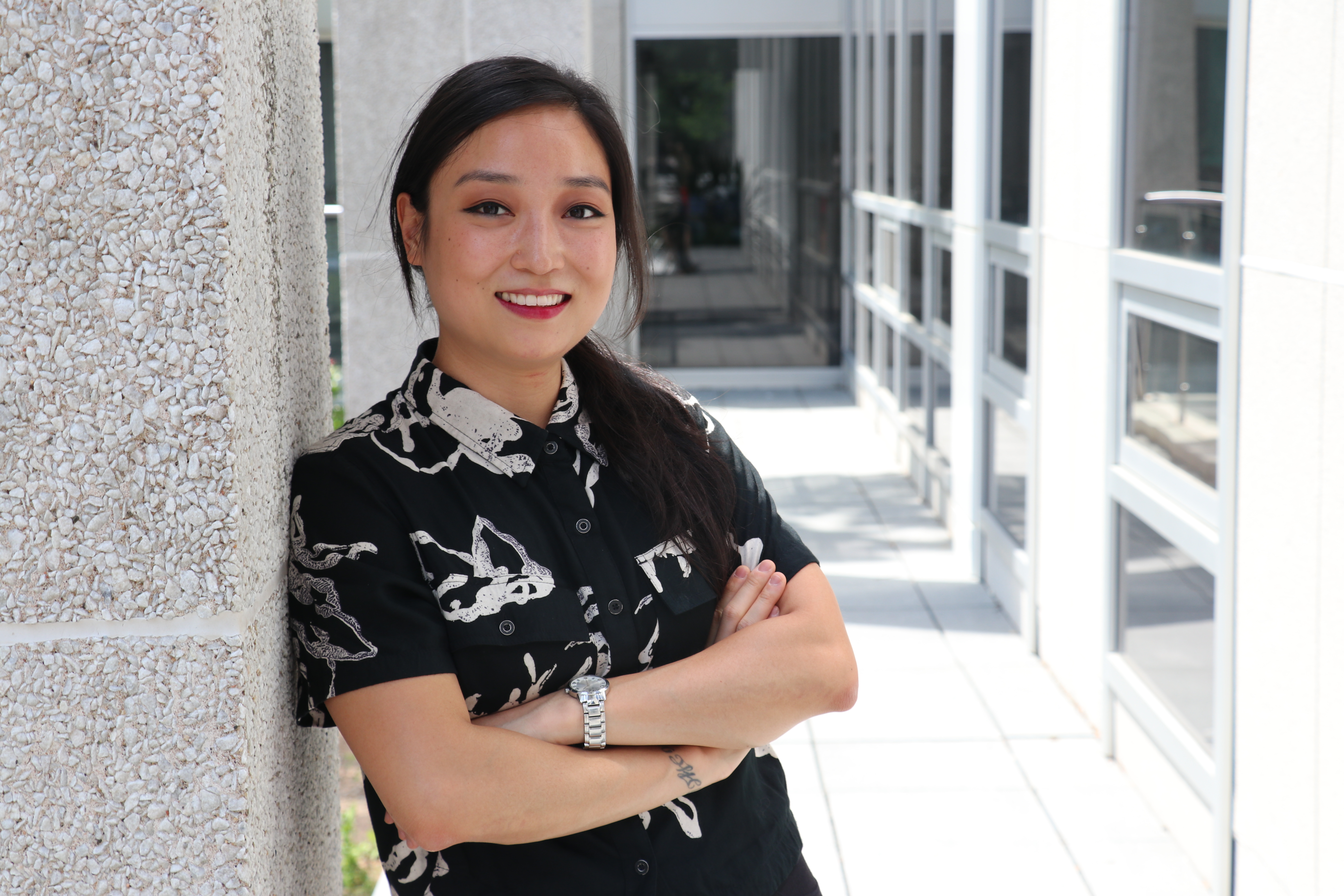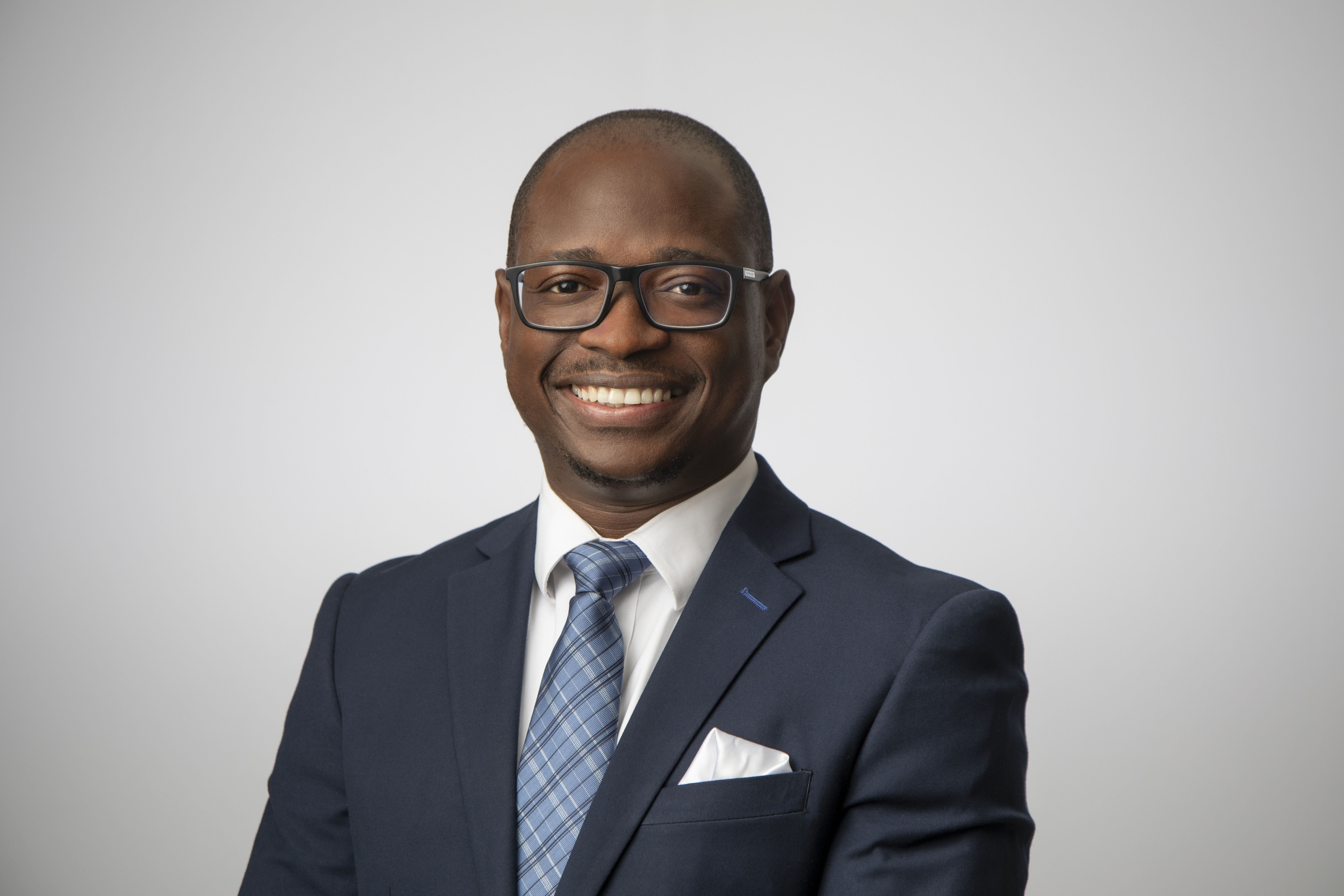Three scholars set to advance legal scholarship and teaching at Faculty of Law
Doug Johnson - 7 May 2024
Three legal scholars are poised to deepen and expand the research and teaching expertise of the University of Alberta Faculty of Law in their new positions as assistant professors.
Caylee Hong, Angela Lee and Adebayo Majekolagbe bring valuable expertise to both their students and the research community at the U of A in these new roles.
Hong is an anthropologist and lawyer with a focus on corporate law, bankruptcy and insolvency, infrastructure and the environment. Lee’s areas of interest and expertise include food and tech law, among others. Meanwhile, Majekolagbe has a wealth of knowledge in climate change, constitutional and international business law.
Caylee Hong
 Hong will take up her position as assistant professor with the Faculty of Law on July 1, 2025.
Hong will take up her position as assistant professor with the Faculty of Law on July 1, 2025.
In some ways, Hong’s career got a good headstart after a “profound” early experience. While a teenager in her hometown, Prince George, British Columbia, she was selected to attend the Li Po Chun United World College — a prestigious International Baccalaureate institution — in Hong Kong. This early international experience led her to study at University College Utrecht in the Netherlands, before heading to the University of London SOAS to complete her master of laws degree.
From there, she interned at UN-Habitat in Nairobi, Kenya, before returning to Canada to complete a bachelor of laws and bachelor of civil law degree at McGill University. Currently, she is also completing her PhD in Anthropology at the University of California, Berkeley. Her dissertation examines the long-term impacts of urban oil operations in Los Angeles.
During her time at law school, she was a summer associate at Milbank LLP in New York. After completing her studies in Canada, she clerked for Justice Luc Martineau at the Federal Court of Canada, before returning to Milbank to work with its Project, Energy and Infrastructure Finance Group. She held that position from 2014 to 2017 before starting her PhD at Berkeley, where she also taught as a graduate student instructor.
Now, Hong is thrilled to be returning to western Canada and to make Edmonton her new home. She was drawn to the U of A because of its research and expertise in the energy sector, and because she wanted to be closer to her family. She’s also excited to continue teaching and continuing her research in corporate and environmental law.
“I aim to develop my skills as an educator, advocate, and researcher to help build communities of learners that are empowered to navigate and act in the world critically and creatively,” she says.
“This is especially important for law schools — institutions that are entrusted with training people to become legal professionals and engaged community members.”
Angela Lee
 An expert in food and tech law, Lee has been appointed as an assistant professor with the U of A Faculty of Law, effective July 1, 2024.
An expert in food and tech law, Lee has been appointed as an assistant professor with the U of A Faculty of Law, effective July 1, 2024.
“I appreciate the Faculty of Law's storied history as an institution of Canadian legal education,” Lee says of the reasons she was drawn to the U of A’s Faculty of Law.
There are other reasons as well, she says. These include its commitment to fostering academic excellence, the wealth of experiential learning opportunities it offers and the extensive and deep knowledge held by faculty members. Lee recalls admiring the Faculty for a long time, since she first explored the idea of going to law school.
Lee completed her bachelor degree in interdisciplinary studies and, later, her juris doctor at the University of British Columbia. She then enrolled in the master of laws program with a concentration in global sustainability and environmental law at the University of Ottawa and was fast-tracked into the PhD program.
While at the U of O, she was appointed part-time professor and co-taught a seminar on food law. In the 2019-20 academic year, she was also a Schulich Fellow at Dalhousie University’s Schulich School of Law, where she taught contract and animal law. Later in 2020, she joined the inaugural team of faculty members at the since-renamed Toronto Metropolitan University’s Lincoln Alexander School of Law. She was a full-time faculty member there until accepting the position with the U of A this year.
Lee hopes to be able to continue to teach core concepts for first-year students while also leading more specialized classes in her areas of expertise for upper-year students. Lee is also eager to expand her research agenda, hopefully collaborating with other academics both in and outside of the Faculty.
A first-generation immigrant, Lee said she strongly believes in the importance of representation, including in the study and practice of law. She hopes that her presence in the Faculty will reduce the feelings of alienation that some students who are similarly situated may experience when entering law school and the legal profession more broadly.
“It is still surreal to me to now be in a position where I can set a positive example for students who may see some part of themselves in me, and it is a privilege that I take very seriously,” she says.
Adebayo Majekolagbe
 Majekolagbe joined the U of A Faculty of Law first as a sessional instructor teaching climate change law before being appointed as an assistant teaching professor in 2023. He will now step into the role of assistant professor, effective July 1, 2024.
Majekolagbe joined the U of A Faculty of Law first as a sessional instructor teaching climate change law before being appointed as an assistant teaching professor in 2023. He will now step into the role of assistant professor, effective July 1, 2024.
He was attracted to the U of A in part because of his experience in sustainability law: he sees Alberta as “ground zero” for the energy transition in Canada. This promises to be, at once, compelling and challenging, he says. But the Faculty of Law also has a track record of “shaping conversations and crafting solutions to the most important challenges of our time,” he says.
Majekolagbe holds numerous degrees from Nigerian and Canadian universities. He received his bachelors of laws degrees from Ekiti State University and the Nigerian Law School in 2011 and 2013, respectively, before receiving his master of law degree from the University of Lagos in 2017. In 2018, he completed his master of laws at Dalhousie University before completing his PhD there in 2022.
His work experience also spans continents. Between 2014 and 2017, he was associate counsel at Wole Olanipekun & Co, in Lagos, Nigeria. There, he represented clients in both constitutional law and commercial law disputes. At Dalhousie, from 2018 to 2022, he was an adjunct professor and researcher at the school’s Marine and Environmental Law Institute.
Majekolagbe is happy to continue teaching and, indeed, learning from students in the Faculty of Law, along with his peers. He notes that “spirited, yet friendly,” scholarly debates are particularly rewarding for him.
“I look forward to embarking on a journey of mutual learning with my students — a journey where we learn with humility, yet dare to challenge, discover and create with boldness and excitement,” he says.